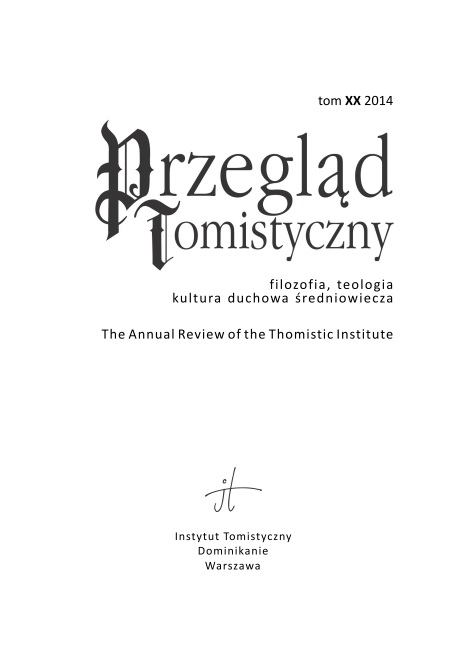Sprawiedliwość a prawo w nauczaniu Jana Pawła II
Justice and Law in the Teaching of John Paul II
Author(s): Marek PiechowiakSubject(s): Law, Constitution, Jurisprudence, Theology and Religion, Philosophy of Law
Published by: Instytut Tomistyczny
Summary/Abstract: This article focuses on philosophical issues surrounding justice in positive law in light of the social teaching of John Paul II. The analyses begin with a consideration of the anthropological foundations of justice as a virtue, develop with a reflexion on the actions that realize the virtue of justice, and conclude with an examination of the criteria of justice in law. It is argued that relations between a human being and goods (the ends of actions) form the ontological basis of natural law and the justice of actions — orders and prohibitions are secondary in respect to these relations. The aim of any just law (and of natural law) is not the preservation or restoration of an abstractly-understood moral order based on norms (which include orders and prohibitions) but the integral development (i.e., the good) of a person, who is a being possessing dignity. John Paul II’s philosophy of law takes advantage primarily of Thomas Aquinas’s approach to law and combines it with constructions that are typical of the contemporary human rights protection. John Paul II’s conception of natural law is anthropocentric and based on subjective rights thinking. Human dignity and the human rights that derive from it provide the basic criteria for the justice of any law. Human rights, as subjective rights, are disclosed by natural law, which is understood as a set of goods for the human person. These goods are the ends of actions, and as such they determine actions and their forms. This point of view is compatible with Aquinas’ definition: “law is nothing but a rational plan of operation, and … the rational plan of any kind of work is derived from the end” (Summa contra gentiles, lib. 3, cap. 114, n. 5). Positive (human) law that is unjust has no normative power in the sense that it does not, in itself, provide reasons for the concrete actions of a concrete actor. Sometimes there are moral reasons for following an unjust law. However, if the law prescribes actions that are wrong in themselves (that is, internally wrong), then there is a moral obligation to act contrary to this legal norm.
Journal: Przegląd Tomistyczny
- Issue Year: 2014
- Issue No: XX
- Page Range: 209-238
- Page Count: 30
- Language: Polish

